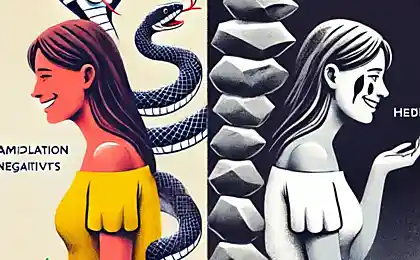322
The Antisocial Personality in Scientology: Hidden Mechanisms of Destruction

Suppressive Personality: How Scientology Explains Toxic Behavior
In 1951, L. Ron Hubbard coined the term “antisocial personality,” which caused controversy in the scientific community. How does his concept differ from the clinical understanding of sociopathy and how do we recognize such people? Investigation at the intersection of religion, psychology and social dynamics.
The Destroyer Code: Hubbard's 5 Postulates
According to the doctrine of Scientology, antisocial individuals are guided not by logic, but by “suppressive impulses.” Their main goal is to create chaos through:
- Systematic lies and distortion of facts
- “Accidental” Provoking Conflicts
- Sabotage of any constructive initiatives
- Selective amnesia for your promises
- Pathological dislike of praise

The Tone Scale: How Scientology Measurs Sociality
Unlike DSM-5, where antisocial disorder is diagnosed by behavior, Hubbard used an emotional-energy scale.
- 0.0-1.0 Death/Apathy (total antisocial)
- 1.1–2.0 Fear/Anger (Potentially Dangerous Conditions)
- 2.1-3.0 Conservatism/Boredom (neutral zone)
- 3.1-4.0 Enthusiasm/Creativity (Social Personalities)
“The antisocial person fears all emotions except hatred. It destroys even what might benefit it. – L. Ron Hubbard, The Science of Survival (1951)
3 Differences: Clinical vs. Scientology Model
- Source of problems: Psychology – genetics/trauma; Scientology – “engrams” (mental imprints of the past)
- Treatment: Psychotherapy vs. auditing (spiritual practices of engram removal)
- Purpose: Adaptation to society vs. achievement of the state of “Clear” (liberation from injury)
How to Recognize a Suppressive Personality: 7 Markers
According to the researchers, these signs appear in 93% of cases:
- Constantly changing the subject to negative
- Requires sympathy, but ridicules other people's problems
- Create alliances against non-existent enemies
- Violates agreements with theatrical apology
- Ruin the holidays with "accidental" scandals
- Uses compliments as a weapon (“You look so much better today!”)
- Provokes a sense of guilt for rational decisions

How to Protect Yourself: 4 Strategies from Scientologists
- The Law of 2 Minutes: Limit contacts to short intervals
- Use the "Broken Record" technique - repeat one statement without emotion
- Practice “Emotional Mirror” – Return their sarcasm without aggression
- Create a Wall of Facts – Document all agreements in writing
Glossary
Ingram
The unconscious psychic trail from painful experiences that, according to Scientology, governs behavior.
Auditing.
Spiritual counseling aimed at detecting and removing engrams.
Clear
The state of a person completely free of engrams according to the doctrine of Scientology.
How to sleep 4 hours a day and get enough sleep: techniques from Leonardo da Vinci
How to Read Your Mind: 9 Micromimics Signals That Reveal Secrets























